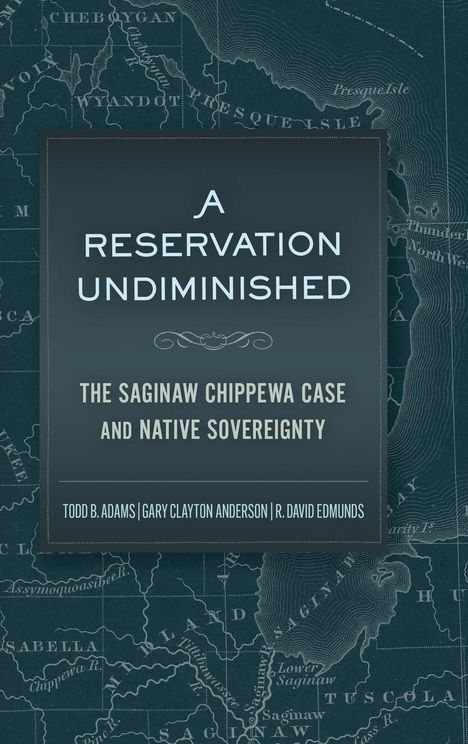Todd Adams: A Reservation Undiminished, Gebunden
A Reservation Undiminished
- The Saginaw Chippewa Case and Native Sovereignty
(soweit verfügbar beim Lieferanten)
- Verlag:
- University of Oklahoma Press, 10/2024
- Einband:
- Gebunden, HC gerader Rücken kaschiert
- Sprache:
- Englisch
- ISBN-13:
- 9780806194707
- Artikelnummer:
- 12093555
- Umfang:
- 194 Seiten
- Gewicht:
- 440 g
- Maße:
- 235 x 157 mm
- Stärke:
- 15 mm
- Erscheinungstermin:
- 22.10.2024
- Hinweis
-
Achtung: Artikel ist nicht in deutscher Sprache!
Klappentext
It took more than one hundred years for federal, state, and local governments to recognize the Saginaw Chippewa Tribe's claim to its Isabella Reservation in central Michigan. This book tells the story of how the tribe persevered and eventually succeeded in having the reservation recognized. It is the story of widespread fraud and oppression perpetrated by non-Native Americans seeking to clearcut the rich Chippewa forest for quick profits, despite the federal government's solemn promises of protection made to the Saginaw Chippewa nation in treaties.
In its account of the legal battle over the Isabella Reservation, A Reservation Undiminished explores what Native sovereignty actually means. The authors, three key participants in the case, give an inside view of the case and its historical context. When it began to take shape in 2005, lawyers for five different jurisdictions hired historians and anthropologists to evaluate the Saginaws' claim and serve as expert witnesses. Two of those historians, Gary C. Anderson and R. David Edmunds, reveal the importance of archival research in demonstrating governments' continual references to the Saginaw Chippewas' reservation long after 1875, when the state claimed it ceased to exist. Attorney Todd Adams, who represented the state of Michigan in the case, explores what happened after the state settled with the Saginaw in 2010. He recounts the unlikely collaboration of all parties in resolving the conflict.
A Reservation Undiminished presents a cohesive narrative of a legal case that testifies to Native persistence in asserting territorial sovereignty in the twenty-first century-and that highlights the potential for conflict resolution in seemingly intractable legal struggles between state, local, and tribal governments.


